
In celebration of Music Therapy Awareness Month,
Music Heals is putting a spotlight on the incredible music therapists
we support in BC as well as professionals from around the world.
Check back throughout the month to read new entries from
music therapists worldwide.
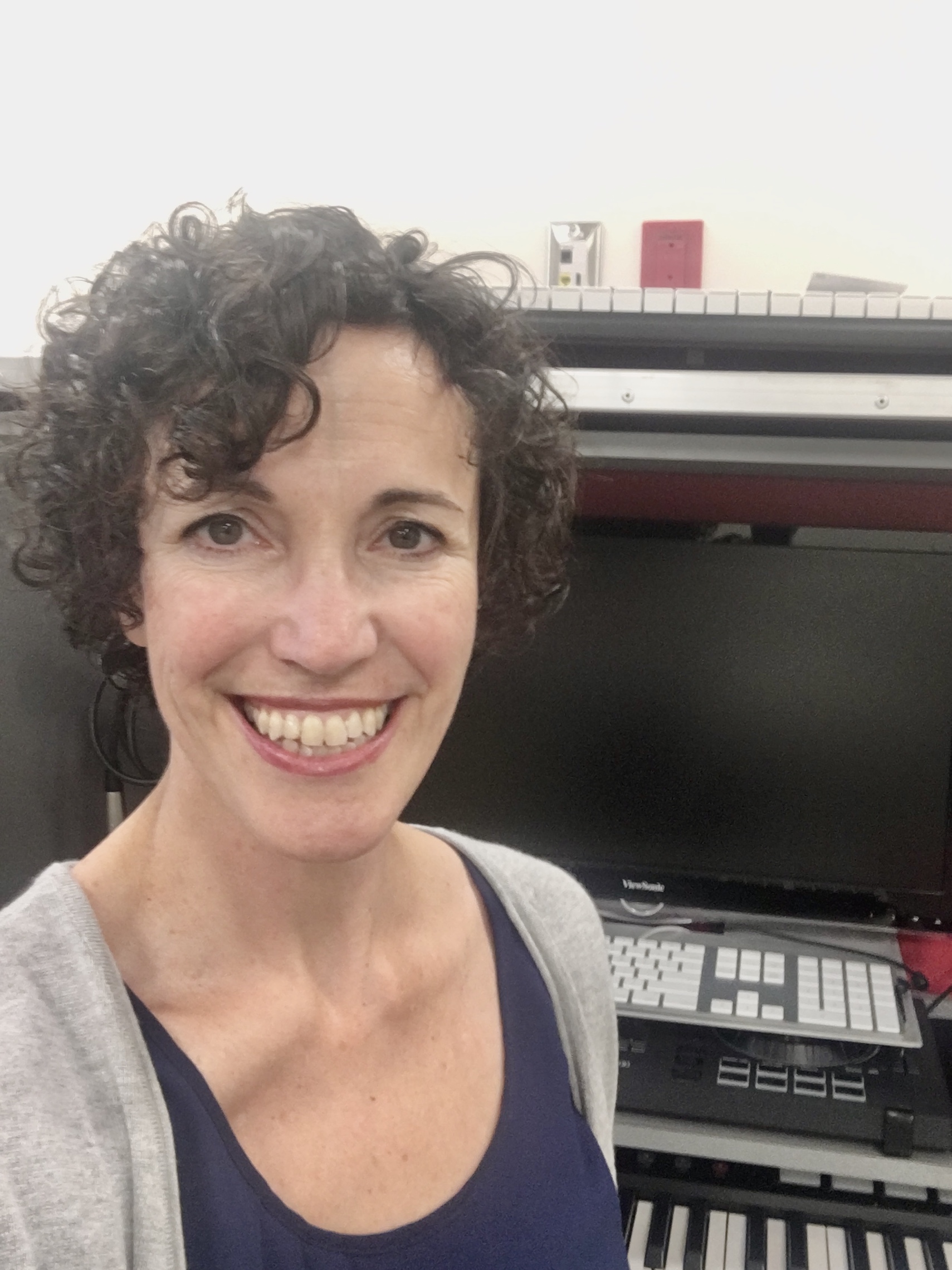
Carol Wiedemann (she/her)
Vancouver, BC | Canada
MTA Since 2002
Areas of practice: Pediatrics, Neonatal Intensive Care (NICU), addiction and mental health
I have always been fascinated by the way humans are hardwired for music before we are even born. I wanted to understand and utilize that innate musicality that we all have within us.
I see music therapy supporting the health and well-being of patients and clients in a family-centred approach, quickly building trusting relationships and expanding potential.
Is being able to connect to so many different people every day through music!
Bridge Over Troubled Water – Aretha Franklin
Case of You – Joni Mitchell
Love’s In Need of Love Today- Stevie Wonder
Feeling Good – Nina Simone
If It Be Your Will – Leonard Cohen
After nervously playing music for my family, hearing my Dad say that he hasn’t seen his mom’s eyes light up like that for a long time.
Residents in long term care have a complex set of needs, especially during these times. I’m honored to play a part in a care team that seeks to address each need to the best of what we can. Music therapy focuses its efforts to address psychosocial, emotional and spiritual areas of health, examples including: loneliness, depression, boredom and hopelessness. I’ve had the pleasure of witnessing a group of sleepy residents, wake up and sing along to “You are My Sunshine”. And to see residents and staff dance together, cheer, and clap along with “Those Were the Days”. To receive a word of thanks from the nurse and care aide, when a resident showed less aggressive and more compliant behavior after a one-to-one session. And to see tears mixed with thankfulness and grief from family members when they hear “Amazing Grace” while their loved one is in palliative care.
…finding the song that makes a person smile.
I’ll Make a Man Out of You – Mulan
Breaking Free – High School Musical
Aloha – Cho Jung Seok (from “Hospital Playlist Season 1”)
You’ll be In My Heart – Phil Collins (from “Tarzan”)
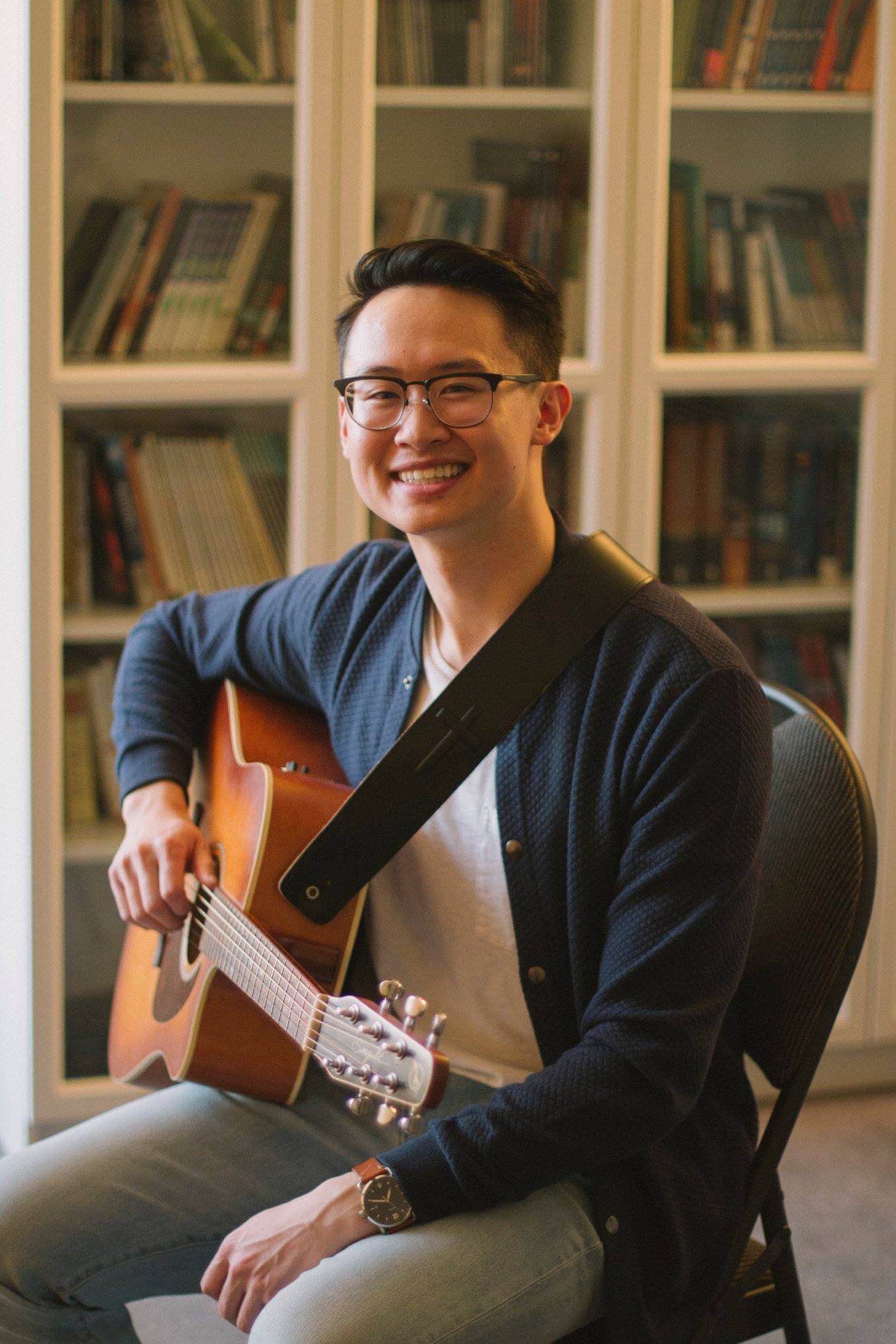
Cameron Yip (he/him)
Vancouver, BC | Canada
MTA Since 2020
Areas of practice: Dementia, Palliative Care, End of Life
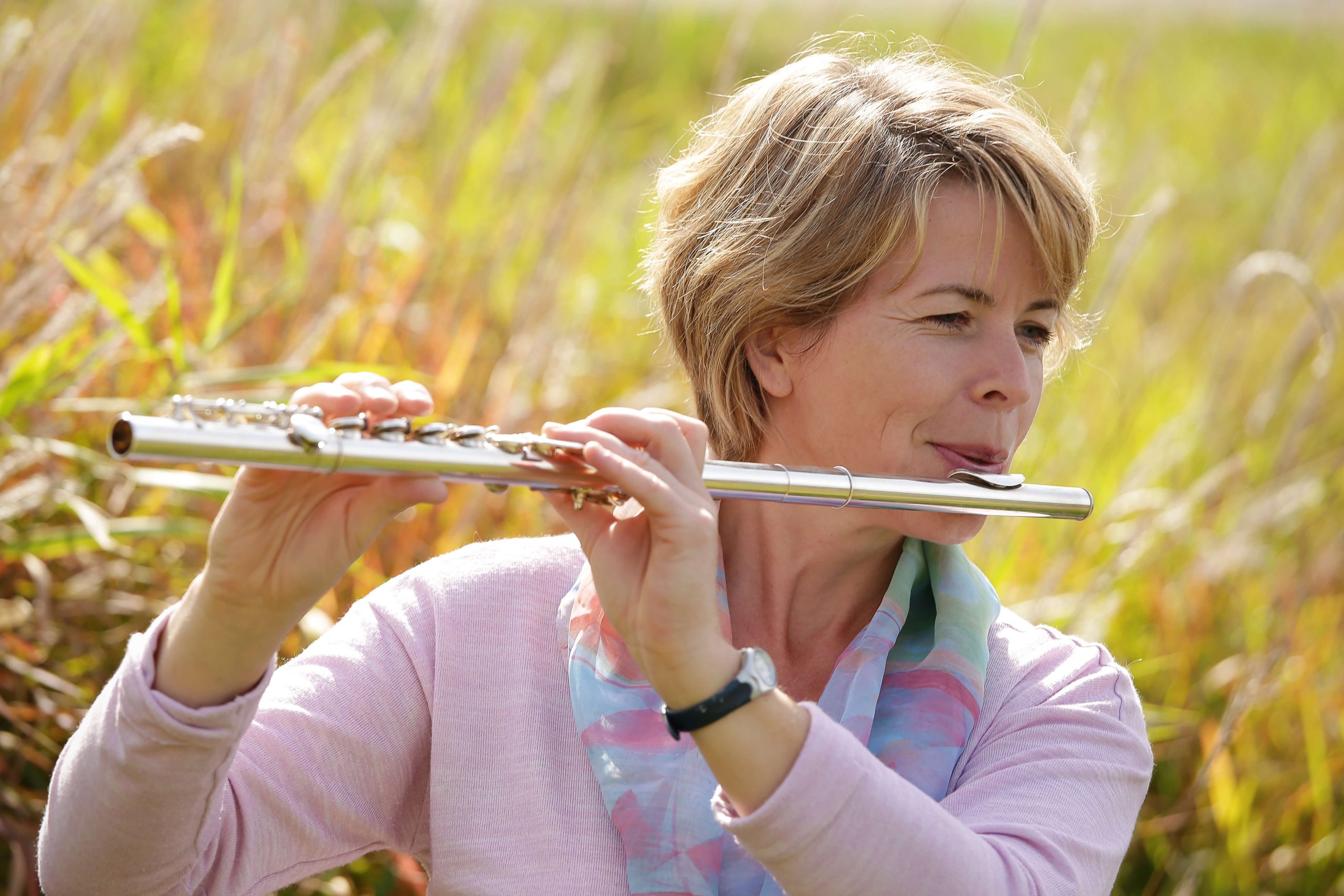
Birgit Giesser (she/her)
Vancouver, BC | Canada
MTA Since 1999
Areas of practice: In long-term care, Assisted and Independent Living for over 20 years. For the past 14 years I have increasingly worked with children and youth, and now found my new home base with adults, youth and children with developmental disabilities.
I learned from my grandparents what it means to give and receive care. I loved their generation from when I was really young. I thank my parents and my older sister for inspiring and supporting my interest in music and social justice, and letting me run free towards various instruments, ensembles, and my post-secondary choices of education and later, music therapy. I saw it as the perfect way for me to make a difference in the world and have never regretted entering the field.
As music therapists, we are privileged to share in the client’s sorrows and joys, challenges and achievements. We participate in their journey of working and playing their way towards wellbeing and personal growth. Whether we use existing music of all genres, or improvise music with someone in the moment, our relationship, our listening and give-and-take are actions that show acceptance and support and give our clients practical tools.
…that there is always a moment of surprise, joy and bliss just around the corner. Knowing this keeps me singing!
“The Valley”, by Jane Siberry and k.d.lang
“Bacchianas brasilieras No. 5 – Aria, by Heitor Villa-Lobos
Requiem, opus 48: VII: “In paradisum”, by Gabriel Faure
“Till there was you”, the version by Etta Jones or The Beatles
“Sitting here in Limbo”, Jerry Garcia and David Grisman (that one carried me through the first wave of the pandemic)
I had completed a degree in classical music, but I didn’t want to teach and I didn’t want to perform professionally. I had always known about the music therapy program at Capilano University, but I didn’t know anything about the actual practice of music therapy. Feeling aimless, I was encouraged by a friend to check out the program at Capilano. The program coordinator, Stephen Williams, helped set me up with a music therapist to shadow, for me to better gauge whether or not I wanted to pursue further education in music therapy. When I did meet the music therapist and observed a session, I was immediately inspired. It just made sense. I didn’t look back from there.
The majority of my work is in hospice and acute palliative care, and I practice within a patient-centered framework. That is to say, no one that doesn’t want music therapy has to have it, and those that do really benefit a lot from it. Whether it is legacy work in hospice (writing and recording songs for patients to leave their loved ones) or receptive music therapy in hospital (playing patients’ preferred music at bedside to provide comfort and distraction from pain), I feel privileged to witness music therapy having such a profound effect on people’s lives each day.
The people. It is an honour to be welcomed into a person’s space during their final days and provide a service for them – not to mention the many amazing stories that are shared with me.
This isn’t fair. Because I’d probably grow tired of them eventually. Like, Weezer is my favourite band, but I’m not sure I’d put a single song of theirs on a list of 5 songs to listen to forever (who am I kidding, of course I’m going to). It is quite possible I’m overthinking this. Also, songs have words, so that negates all instrumental music.
I’ll attempt to put together five songs though (in no particular order):
1. Uncle Albert/Admiral Halsey by Paul & Linda McCartney
2. The Modern Leper – Frightened Rabbit
3. The Greatest Man That Ever Lived – Weezer
4. Sunday Clothes – Great Bloomers
5. I Know How To Speak – Manchester Orchestra

Joshua Denny-Keys
Vancouver, BC | Canada
MTA Since 2018
Areas of practice: Palliative care, end of life, HIV/AIDS

Laura Hastings (she/her)
Vancouver, BC | Canada
MTA Since 2013
Areas of practice: Long term care, NICU (medical music therapy)
When I learned about music therapy it felt like something clicked for me. I loved that I could use music to help people and to bring joy to their present moment.
I see music therapy meet the needs of the premature infants that I work with when I see their oxygen saturation improve, heart rate stabilize, and ability to self regulate improve. I see how music therapy supports first time parents and their babies bond and form attachments. I see how music therapy helps elders in long-term care feel like themselves and feel connected to others despite restrictions and physical limitations.
…Singing babies to sleep and elders to life.
You are my Sunshine
It is Well
Fly me to the moon
Rachmaninov piano concerto No. 2
If I Go, I’m Goin – Gregory Alan Isakov
I loved music growing up and knew that I didn’t want to perform or teach. I was drawn more in life to helping people and thought about entering the healthcare profession prior to discovering music therapy. I used to volunteer at hospitals and rest homes all throughout middle and high school. Once I learned about the music therapy programme at Acadia University, I was sold. The rest is history.
There are many ways I see music therapy meet the needs of my clients and sometimes I still get amazed at this tool we have access to. The joint experience of musical intervention paired with the therapeutic relationship allows for a gateway of positive and meaningful interaction. For some, the music therapy space is one that they are free to express difficult feelings or find their unique voice. It is one where their skills and abilities are celebrated. One where they tap into parts of their cognition, language, or physical endurance that may be regularly overshadowed by the parameters of a diagnosis. It is a space where clients feel respected and seen as a worthy human being. We ALL deserve that!
…the opportunity I get to connect with others in such a meaningful way.
Ooooh… great question! And a very tough one for me. In this season of life I would say (in no particular order):
– “Can’t Give Up Now” – Mary Mary
– “Three Little Birds” – Bob Marley
– “Uptown Funk” – Bruno Mars and Mark Ronson
– “Pump Me Up” – Krosfyah
– “Water under the bridge” – Adele

Hayley Francis Cann (she/her)
Kingston, Ontario, Canada & Bermuda
MTA Since 2017
Areas of practice: Dementia, Autism, Neurologic Rehabilitation
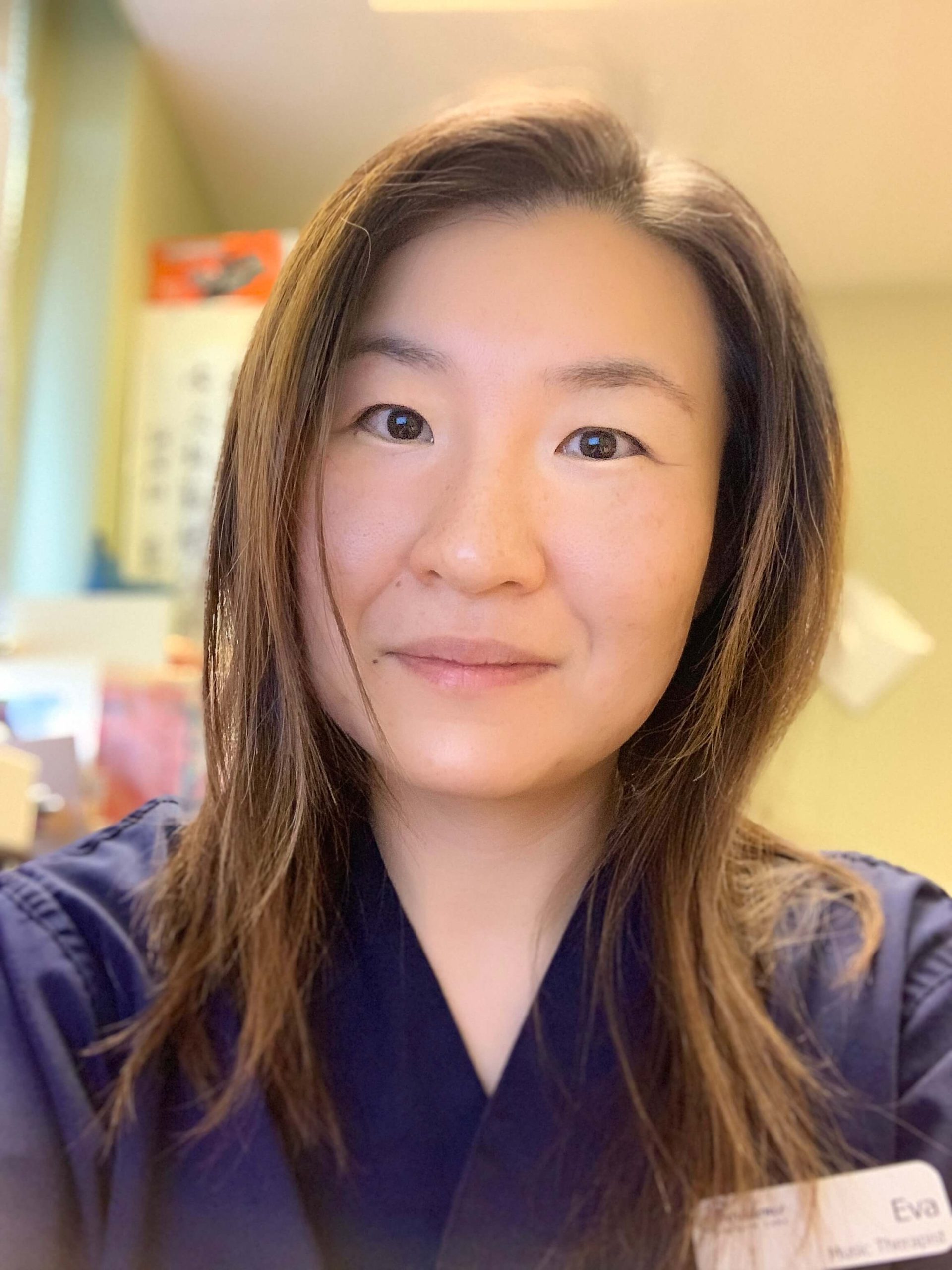
Eva Wong (she/her)
Vancouver, BC | Canada
MTA Since 2008
Areas of practice: Dementia, End of Life, Stroke
I discovered music therapy in high school. My teacher arranged for me to shadow a music therapist during career prep. After seeing her in action, I was determined to become a Music Therapist.
In long term care, music therapy provides ample opportunities for residents to experience joy and meaningful connections. Making music or experiencing music together not only is fun but also creates and fosters a sense of belonging and community, thereby reducing loneliness. Music therapy can also be used to facilitate self expression and gives a voice to those who find it difficult to express themselves.
…using music to facilitate connections between people.
Make You Feel My Love
Living Hope
Both Sides Now
Top of the World
Heal the World
Harnessing the power of music to help people, the core of music therapy, is what inspired me! At the time, I was a student and torn in choosing a career path, between psychology (counseling or neuroscience) or a musical career. Upon searching through my provincial careers website, the description for ‘music therapist’ jumped out at me from the page, and I knew immediately that this would be my future. Music therapy combines everything I’ve wanted to achieve as a professional, the science of music and the brain coming together to work with and help people in real-time. It’s the best job in the world.
Through all fields I work in, I see music as an important mood regulator and source of immense relaxation, bringing patients and clients to a place of calmness and clarity.
The families of end-of-life patients can create new memories that they can carry through their grief journey. The patients sometimes sing regardless of their ability to speak, allowing their families to have precious moments of communication through song.
The bereaved can reminisce, connect with their lost loved one, sing and process their feelings in a non-verbal and creative way.
In my weekly groups with residents in mental health housing, they can come together and share songs, feeling like part of a team, a ‘band’ of peers who may not otherwise speak or get along – all meeting for the highlight of their week.
…Spending some of the last moments of a patient’s life together with their family, singing their favourite songs all together by their bedside.
Handle With Care – the Travelling Wilburys
Money – Pink Floyd
undecided – Dir en grey
Long as I Can See the Light – Creedence Clearwater Revival
Weak – Skunk Anansie

Tracy Laslop (they/them)
North Vancouver, BC | Canada
MTA Since 2020
Areas of practice: End of life, Palliative/Hospice care, Bereavement (families, children and adults), Oncology, Psychogeriatrics

Sonja Knaus
Toronto, Ontario | Canada
MTA Since 2021
Areas of practice: Geriatrics, Developmental Disabilities, and Mental Health
My musical talents and passion for connecting with diverse people from various backgrounds!
I see music therapy help people communicate their thoughts, feelings, and needs! I can also see how music therapy helps people to engage in a safe and fun medium, and it is a wonderful tool for people to develop meaningful relationships with others!
Creating lasting connections with diverse people and making the healthcare profession more holistic, and improving healthcare!
Good Ones by Charli XCX
Clair de Lune by Debussy
Edge of Darkness by Greta Van Fleet
Hey Jude by The Beatles
Slow Burn by Kacey Musgraves
Witnessing the power of music and believing strongly in people led me to this profession to create relationships with others who seek change, growth, maintenance, or development.
I see it in several outcomes that augment one’s quality of life. This includes many facets of human experience. Some examples are communicative competence, identifying emotions and emotional expression, connecting with others, believing in oneself, gaining employment skills, practicing coping and relaxation skills, making friends.
…Seeing others tap into their power and use it for their benefit to accomplish what they want to achieve.
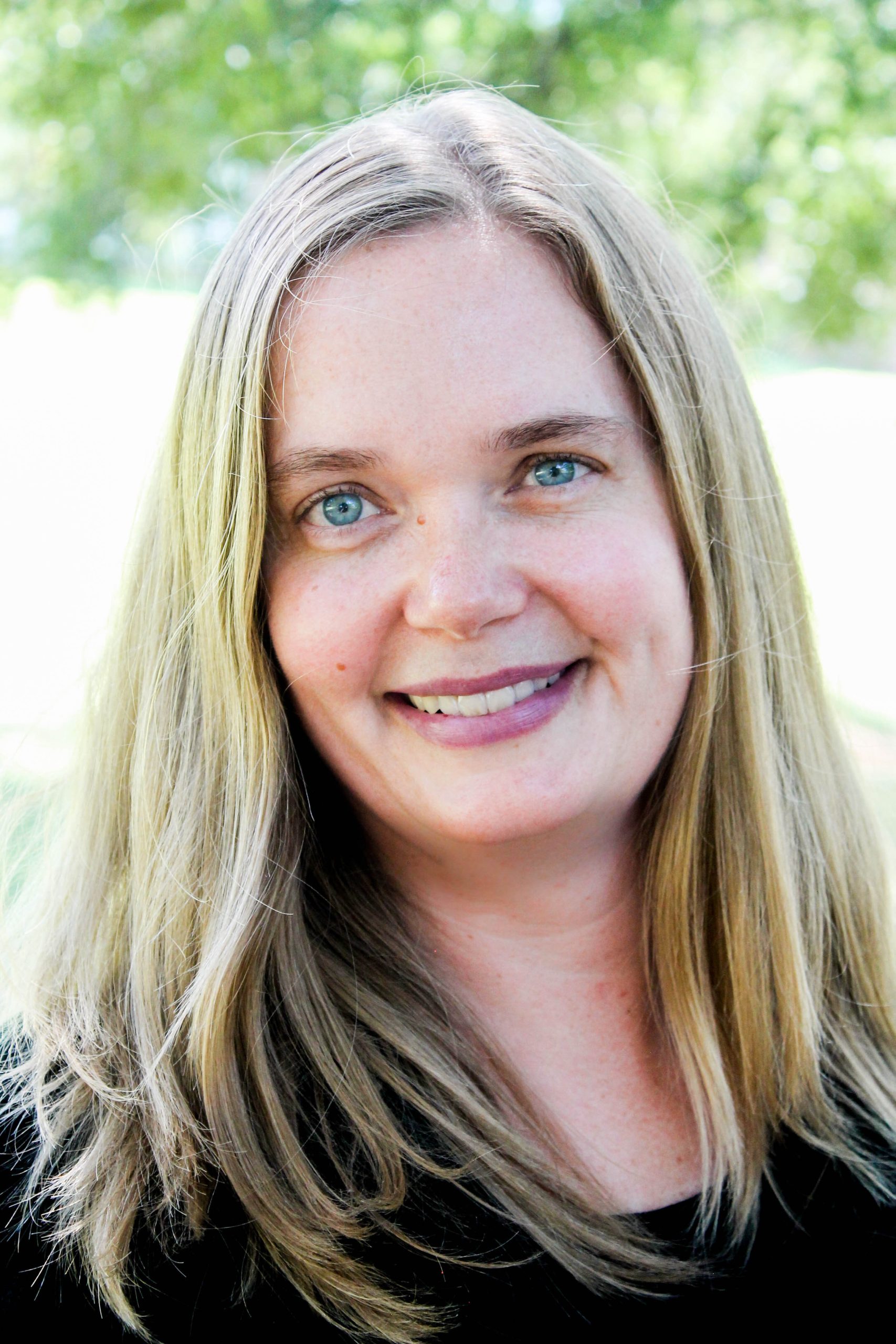
Anita Swanson (she/her)
Austin, Texas | USA
MTA Since 2000
Areas of practice: Persons with Autism Spectrum Disorder, children experiencing trauma
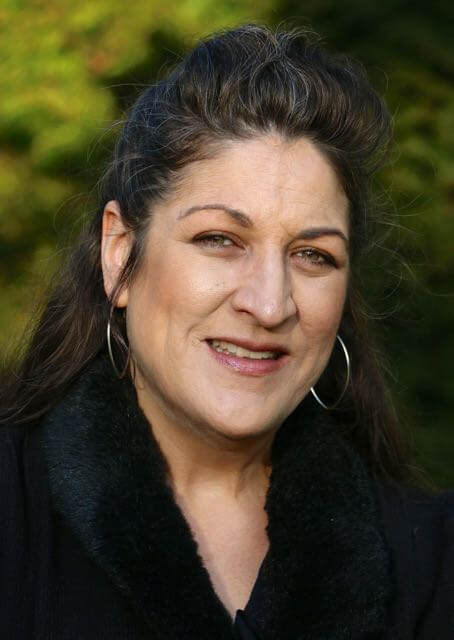
Sue Baines (she/her)
Vancouver, BC | Canada
MTA Since 1990
Areas of practice: Long term care, dementia, end of life, mental health
I knew I was a musician and I wanted to use music for health and well-being.
Music therapy is a time and space in the care home where participants feel connected supporting their spiritual health. They can express themselves supporting their mental health. They are reminded of important memories supporting their emotional health. They move and breathe deeply supporting their physical health.
The best part of my job is inspiring people to express and experience themselves musically
Nature Boy
Don’t Stop Me Now
Humming Chorus from Madame Butterfly
Summertime
Today I’m Going to Try and Change the World
My mother was a special educator throughout my childhood who spent her leisure time in theatre and encouraged me to sing and play music. When later in life, after a masters in classical voice, I realized I wanted to make music WITH people and not FOR people, music therapy presented itself as a combination of my loves and backgrounds
Many of my young clients have sensory impairments and music is often a natural and accessible medium for them – their world opens to us through music . My clients with speech disorders can practice their goals in a way that is motivating and empowering – singing together with confidence. My clients with motor disorders dance together and march down the halls with their physical therapists to songs and playlists I’ve made for them.
…Seeing clients experience music as active interaction with another
Intervention – Arcade Fire
Boy with the Arab strap – Belle and Sebastian
Aéroplane over the sea – Neutral Milk Hotel
Paranoid Android – Radiohead
Wannabe – Spice Girls
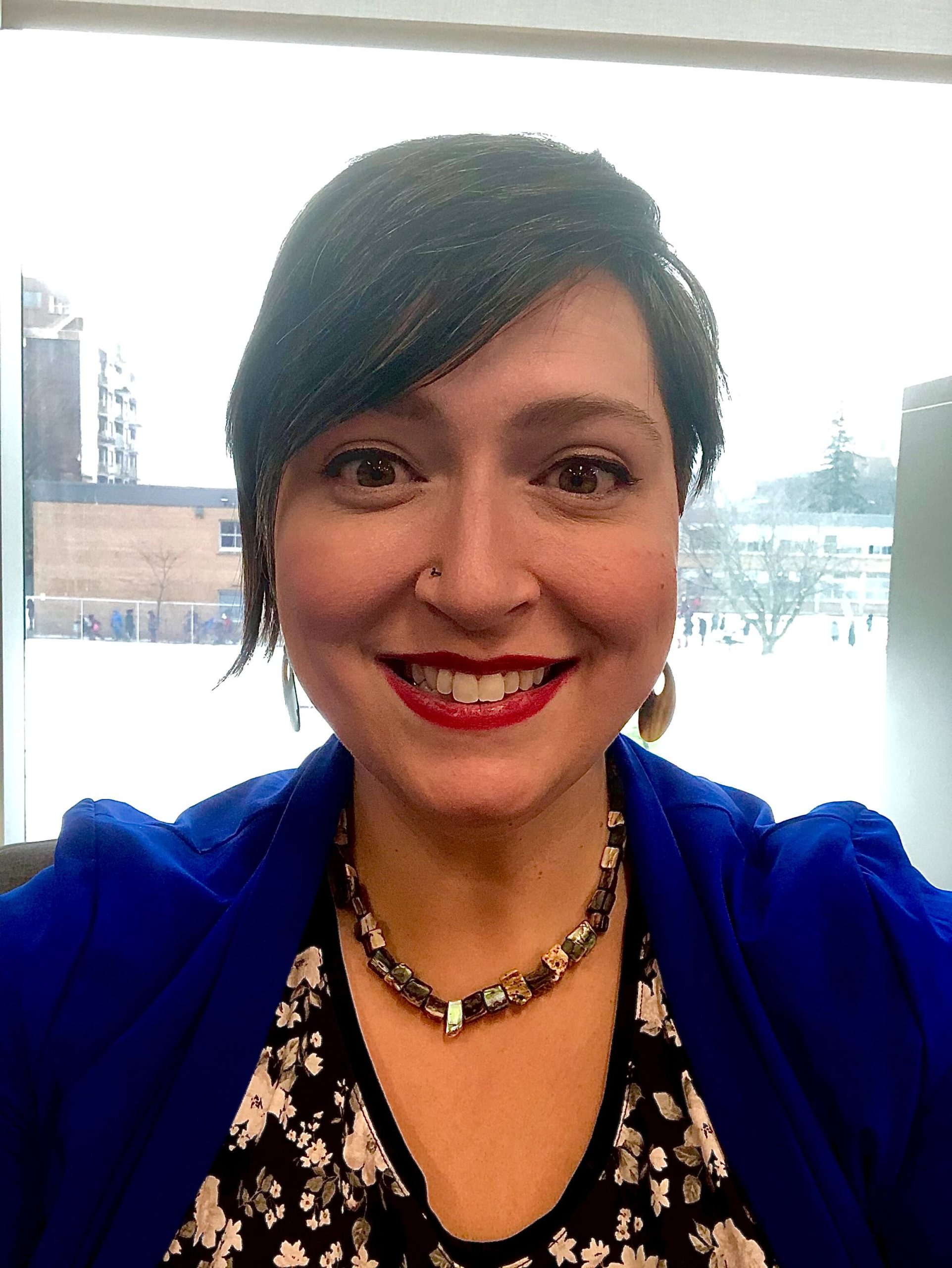
Tiana Malone (she, elle)
Montréal, Québec | Canada
MTA Since 2012
Areas of practice: Pediatric rehabilitation

Bhuvaneswari Ramesh (she/her)
Pondicherry | India
MTA Since 2014
Areas of practice: Medical health care, Mental Health
My love for music, to see the use of music for the better good.
Comfortability, expressing themselves, coping with life’s various problems.
…watching clients/patients through music therapy interventions, when women smile feeling their babies move in their wombs with music, when patients do not feel alone & scared during hospital procedures, when clients cry and say I think god sent you to give me hope.
Bhavayami Gopalabalam (Language: Sanskrit – Singer: MS Subbulakshmi)
Maithrim Bajatha (Language: Sanskrit – Singer: MS subbulakshmi)
Thandai Thaai irundal(Language: Tamil)
Zindagi ka safar(Language: Hindi – Singer: Kishore Kumar)
Realizing the therapeutic value of music in my own life is what led me to become a Music Therapist. I grew up in a family that encouraged creativity and self-development through music. My dad loves to sing and as I grew up, it became a way for us to bond and express ourselves in a more profound way than talking could. Throughout my life, it has helped shape my identity, promote resilience, and foster community. I knew the field was worth pursuing if I could help facilitate what music has done for me.
I specialize in working with neurodivergent children and youth, with an emphasis on building a relationship with music. How that relationship looks is beautifully unique to each individual. Many of my clients are often systemically misunderstood, and enter into the therapeutic relationship cautious of opening up. I’ve seen music therapy build trust, provide comfort, encourage self-understanding, and support a sense of agency for my clients. I’ve seen how music can regulate hard feelings, provide supportive sensory stimulation, and encourage clients to try new things on their own terms.
…the meaningful variety of work I get to do each day! No day is the same.
“In Our Bedroom After the War” by Stars
“Jesus Etc.” by Wilco
“Sprawl II” by Arcade Fire
“Doin’ it Right” by Daft Punk
“The Times They Are A-Changin'” by Bob Dylan
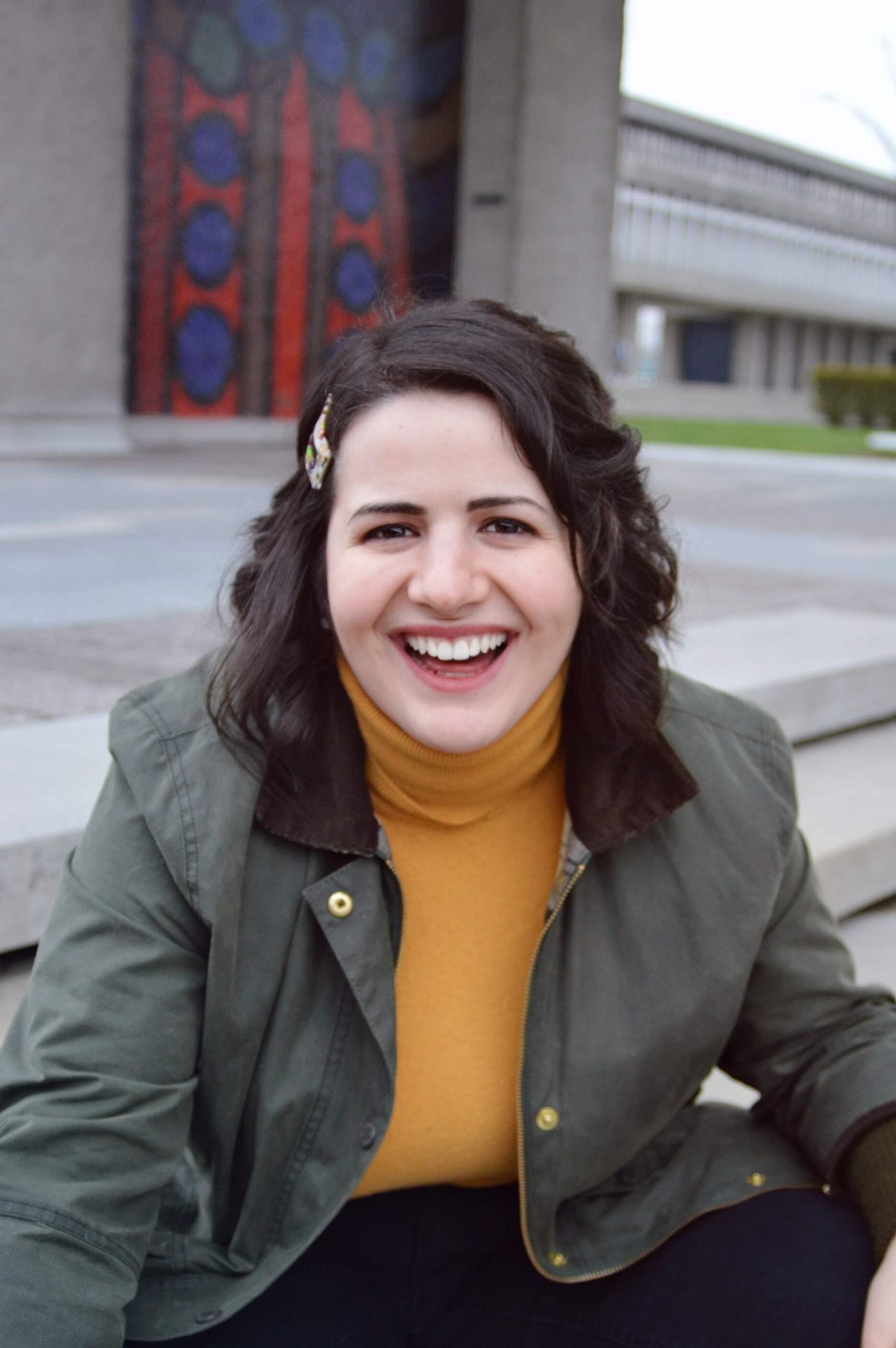
Micaela Pirritano (she/her)
Burnaby, BC | Canada
MTA Since 2021
Areas of practice: Autism, ADHD, Child Development, Anxiety, Mental Health

Supriya Kalathil Crocker (she/her)
Victoria, BC | Canada
MTA Since 2014
Areas of practice: Mental Health: Trauma, anxiety, depression and autism
Helping people using music…having a fulfilling vocation in a creative means was pretty inspiring to pursue music therapy as a career.
Music therapy helps my clients reconnect with themselves. It helps them feel creative while processing trauma, pain and life experiences.
…when clients beam with happiness, from feelings of being heard and also being able to express their emotions or thoughts in a creative way
Keane – We Might As Well Be Strangers
Alicia Keys – Time Machine
Whitney Houston – I Wanna Dance with Somebody
Gymnopedie – Erik Satie
Mutemath – Hit Parade
Are you a music therapist? Fill out this Q&A to be featured on this page.